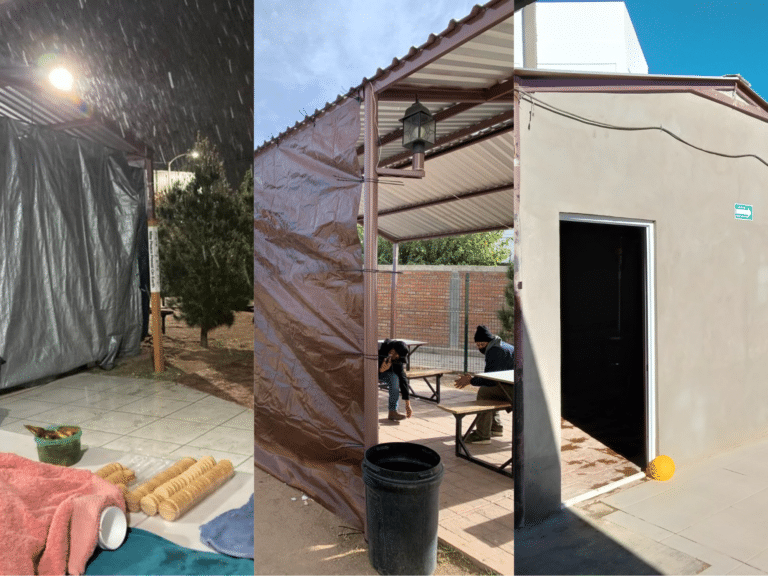
No one gets turned away
The warm hospitality of the CATPSIC people was evident in the way they welcomed the group to the center and cared for them in the desert.

The warm hospitality of the CATPSIC people was evident in the way they welcomed the group to the center and cared for them in the desert.

The Wall. The big ugly wall. Drawn along the artificial, 2000-mile border between the US and Mexico, because of a war fought, in part, to

What the CRM offers for free, the cartel wants to make migrants pay for.

Earlier this summer, staff, volunteers, friends, family and migrants gathered to celebrate the 18th anniversary of the Centro de Recursos para Migrantes (CRM) in Agua

Biden’s executive order on migration only applies to those apprehended after crossing the border irregularly, but has affected other routes of migration, causing distress for migrant families

The new order allows Border Patrol to immediately remove migrants arriving to the US, sending them back to Mexico without a court date or asylum hearing

Amidst a community trying to respond to the needs of migrants, local women are also searching for respite from domestic abuse

CPT creates plan to ensure safe passage for migrant families who are at risk of extortion or kidnapping from the local cartel that controls movement in and out of Agua Prieta

As migrant populations fluctuate, the Migrant Resource Centre in Agua Prieta, Mexico, expands to meet the increasing need for shelter and sustenance

Two of Mexico’s most powerful drug cartels battle control of smuggling routes, putting Mexico’s peasant and Indigenous populations in the middle of violent confrontations